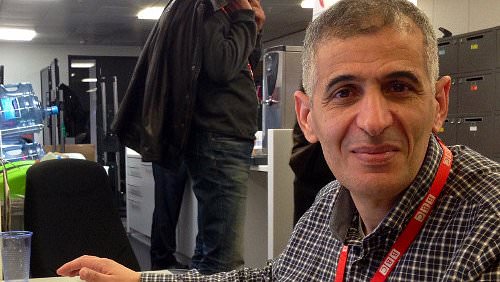A BBC Arabic journalist who shared anti-Israel tweets has won more than £14,000 in compensation after a colleague’s comments made him appear ‘uncivilised’.
Ahmed Rouaba, who reposted a tweet suggesting Israel lied to the International Court of Justice in the recent genocide case brought against it by South Africa, was awarded the money after an employment tribunal in London.
The tribunal found statements made by his colleague were ‘patently related’ to Mr Rouaba’s race and were ‘potentially problematic’ as well as ‘derogatory’.
As a result, the Arabic-speaking journalist was paid £14,246.40 in compensation.
The tribunal heard that his colleague at the BBC World Service, Safaa Jibara, made comments about his character, comparing him to a ‘savage’.
Mr Jibara previously said that Mr Rouba, who is of Algerian origin, was speaking ‘like a Bedouin’ – a nomadic tribes people partly based out of Northern Africa.
Mr Jibara described this comment as racist, he said: ‘In Arabic culture Bedouin means savage and someone who cannot abide by the norms of society.’
In 2020, Mr Jibara told HR that the previous year when Mr Rouaba was asked to address a meeting in ‘formal Arabic’ rather than ‘Algerian Arabic’, he spoke ‘violently’.
Following complaints, senior officials at the BBC World Service division began a formal internal investigation during which one staff worker suggested Mr Rouaba should explain himself in a more ‘mild way’, while one blamed his ‘cultural background’ for his temperament.
HR officials at the BBC later conducted interviews with those present at the meeting who said Mr Rouaba ‘usually gets angry often and quickly’, claiming that he raised his voice towards the editors.
In a statement given to investigators, BBC reporter Mr Jibara said: ‘There’s a lot of background between him and the management. He has an attitude towards them.
‘Before that we have to mention his character and the fact he is from Algeria.
‘There is a violence behind it [the way he speaks], a Bedouin character. He always shouts when he tries to give his opinion, he comes across as sharp.. He can’t explain himself in a mild way. He always shouts and is nervous.
‘This belongs to his character and his cultural character.’
In August 2020, the HR report recommended Mr Rouaba undergo a formal disciplinary review regarding his conduct and he was given a final written warning.
But he appealed after acquiring copies of the interviews given by Mr Jibara and another editor and filed a grievance against them about their comments.
A BBC official reviewed the grievance and told Mr Rouaba: ‘I can see why this statement may have been upsetting for you to read and I absolutely agree that these comments are not acceptable.’
But he rejected his complaint, saying the ‘incorrect, unacceptable language’ had been used ‘in an attempt to explain cultural and background aspects.’
Despite the decision, Mr Rouaba carried on his fight, unsuccessfully appealing at another meeting, chaired by the Head of Journalism and accompanied by the BBC’s panel of ‘External Experts’ in August 2021.
He then took his complaints to a tribunal in 2022.
But tribunal judge Antoine Tinnion dismissed his case saying Mr Rouaba had taken too long to file his tribunal claim.
Meanwhile, Mr Rouaba reposted several tweets that are considered to be anti-Israel.
One of them described elements of Israel’s Gaza blockade as ‘pure evil’, while another suggested Israel was ‘starving’ Palestinians to ‘save money bombing them’.
